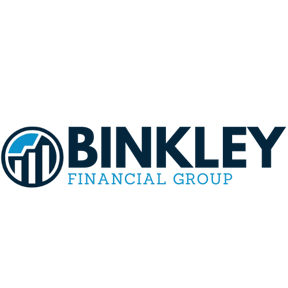Protecting Your Business with Life Insurance
Learn how life insurance can safeguard your business through key person insurance, buy-sell agreements, and more.
Brandon Binkley
7/3/20243 min read


Introduction:
For business owners, life insurance is not just a personal safety net—it’s a crucial component of business protection and continuity planning. Life insurance can help safeguard your business against unexpected events, ensure smooth ownership transitions, and provide financial stability. This post will explore the various ways life insurance can be used to protect your business and ensure its long-term success.
Key Person Insurance:
What is Key Person Insurance?
Definition: Key person insurance is a life insurance policy taken out by a business on the life of a crucial employee whose death would significantly impact the company.
Purpose: The death benefit provides the business with funds to cover the financial losses and costs associated with finding and training a replacement.
Benefits:
Financial Cushion: Provides immediate financial support to cover lost revenue and recruitment costs.
Stability: Helps maintain business operations and reassure stakeholders during the transition period.
Employee Retention: Demonstrates a commitment to key employees, enhancing job satisfaction and retention.
Buy-Sell Agreements:
What is a Buy-Sell Agreement?
Definition: A buy-sell agreement is a legally binding contract that outlines how a partner’s share of a business will be handled if they die, become disabled, or leave the business.
Funding: Life insurance is commonly used to fund these agreements, ensuring that the necessary funds are available to buy out the deceased partner’s interest.
Types of Buy-Sell Agreements:
Cross-Purchase Agreement: Partners buy life insurance policies on each other. When one partner dies, the proceeds are used to purchase the deceased partner’s share.
Entity-Purchase Agreement: The business buys a life insurance policy on each partner. The business uses the proceeds to buy the deceased partner’s share.
Benefits:
Continuity: Ensures a smooth transition of ownership and prevents business disruption.
Fair Value: Provides a clear valuation method, ensuring the deceased partner’s family receives fair compensation.
Liquidity: Ensures that the business or surviving partners have the necessary funds to buy out the deceased partner’s interest without depleting business resources.
Business Loan Protection:
Purpose:
Coverage: Life insurance can be used to cover outstanding business loans, ensuring that the debt does not burden the surviving partners or family members.
Security: Lenders often require life insurance as collateral for business loans to protect their investment.
Benefits:
Financial Protection: Prevents the business from having to sell assets or liquidate to repay loans.
Peace of Mind: Provides assurance to lenders and business owners that financial obligations will be met even in the event of death.
Executive Bonus Plans:
What is an Executive Bonus Plan?
Definition: An executive bonus plan is a life insurance policy that a business purchases for a key employee as part of their compensation package.
Taxation: The premiums are tax-deductible for the business and are considered taxable income for the employee.
Benefits:
Attraction and Retention: Helps attract and retain top talent by offering additional financial security and benefits.
Flexibility: The employee owns the policy and can name beneficiaries, providing personal financial planning benefits.
Case Study:
Scenario: John, a 55-year-old owner of a successful manufacturing company, wants to ensure his business remains stable and secure after his death.
Strategy:
Key Person Insurance: John purchases key person insurance for himself and his top executive, ensuring the company has the funds to cover losses and find replacements.
Buy-Sell Agreement: He establishes a cross-purchase agreement with his business partner, funded by life insurance policies on each other, to ensure smooth ownership transition.
Business Loan Protection: John also takes out a life insurance policy to cover outstanding business loans, providing financial security for the company.
Outcome: John’s planning ensures that his business remains stable and secure, providing financial protection and continuity in the event of his death or the death of a key executive.
Conclusion:
Life insurance is an essential tool for business protection and continuity planning. By incorporating key person insurance, buy-sell agreements, business loan protection, and executive bonus plans, you can safeguard your business against unexpected events and ensure its long-term success. Understanding these strategies and integrating them into your business plan will provide financial stability and peace of mind, allowing you to focus on growing and managing your business.
Durango, Colorado
+17194637116
info@binkleyfinancialgroup.com
Find us On Social
Contact Us
Copyright ©2024 | Binkley Financial Group | All rights reserved
